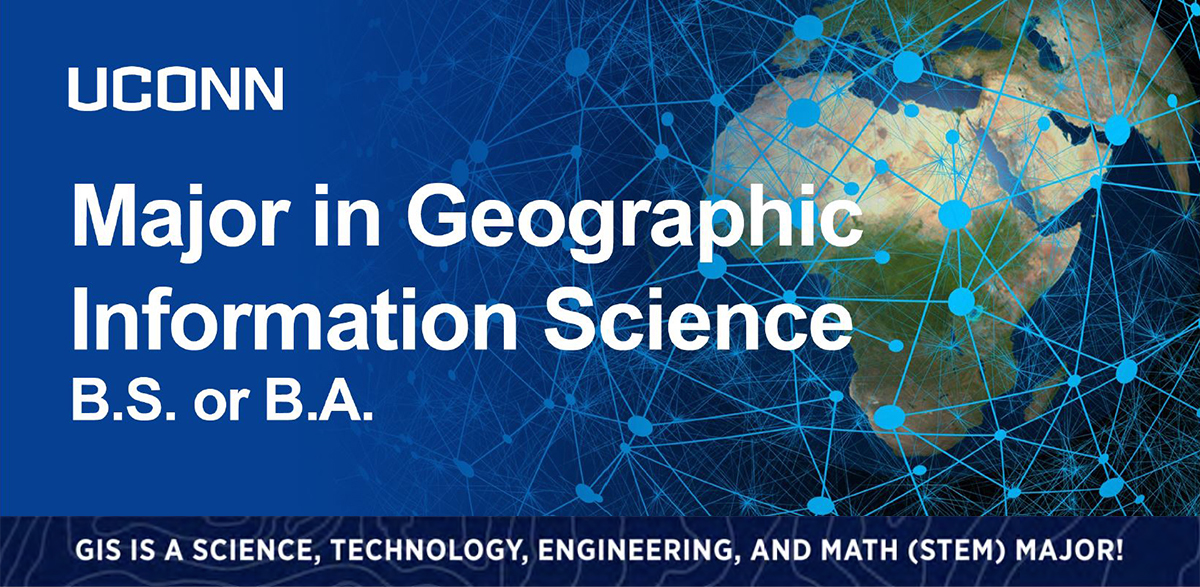
What is GIS?
Geographic Information Science (GIScience) is the scientific discipline that conducts spatial analysis to examine economic, environmental, physical, and social phenomena. The study of spatial data structures and computational techniques to capture, represent, process, and analyze geographic information are essential to GIScience. GIScience overlaps with and draws from many research fields such as computer science, statistics, mathematics, and psychology, and contributes to progress in those fields. GIScience also supports research in many academic disciplines such as natural resource management, environmental science and engineering, geosciences, agriculture, marine sciences, sociology, history, public health, business, and anthropology.
Courses in GIScience enable students to develop capability in spatial thinking and gather in-depth knowledge in geospatial technology. Geospatial technology is a term used to describe the range of modern tools contributing to the geographic mapping and analysis of the Earth and human societies, e.g. geographic information systems (GISystems), remote sensing, the global positioning system (GPS), spatial statistics, web mapping and navigation technologies.
Potential Career Paths
The U.S. Department of Labor recognizes geotechnology as one of the three most progressive professions today, alongside nano technology and biotechnology. Graduates with GIS expertise are in extremely high demand. Potential career paths include:
- Asset Management
- Banking & Insurance
- Land Use & Urban Planning
- Environmental Science & Agriculture
- Transportation & Utilities
- Engineering & Construction
- Defense & Military Applications
POSSIBLE CAREER OPPORTUNITIES:
Click here for career opportunities
UConn Majors to Careers Guides
Major Requirements
Students can obtain a B.S. or B.A. degree.
- The GIScience B.A. degree does not require students to take biology, chemistry, physics, or calculus, and focuses on classes related to spatial analysis of social issues.
- The GIScience B.S. degree requires students to take biology, chemistry, physics and calculus and is intended as preparation for students pursuing a career in natural science or engineering with geospatial technology.
MAJOR REQUIREMENTS:
HELPFUL INTRO COURSES:
Click course for full description
GEOG 1010 - New Digital Worlds of GIS (Gen Ed: CA 3)
GEOG 1302 - GIS Modeling of Environmental Change (Gen Ed: CA 3 Lab)
updated: 10-28-2022